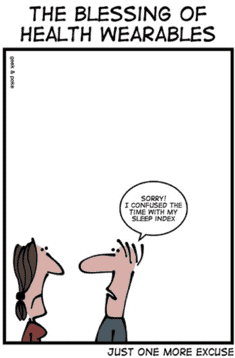Although Google Glass did not receive the warmest welcome for number of reasons, it did not mean the end of wearable devices. On the contrary, we expect the market to welcome more smart watches, glasses, jewellery, clothing… the list seems endless. With such wearable devices gaining traction, it’s no surprise big players such as Apple, Samsung and Google are peddling serious research efforts in this area.

Complex functionalities coupled with non-UI based interactions comprise some of the interesting challenges that wearable devices pose to product designers. Success also depends on the end user experience. Below, we examine four facets we consider crucial for the UX for wearable devices.
1. Ability to blend in
Wearable devices are designed to fulfil a specific purpose (e.g. track your activities), therefore being non-invasive and blending in with your existing gear is important. Besides being almost invisible, wearables should also seamlessly fit in with existing user behaviour; they should not require users to learn new ways of doing things.
2. Personalisation of its look
In addition to being almost invisible, devices should offer users the option to customise designs to their own personal style or requirements. As much as the technology aspect of wearable technology is important to its success, so too is its fashion component.
3. Long battery life
Batteries are an essential component of wearable devices. And the more complex the functionalities, the more battery life required. If wearables spend more time at charging points and less time being worn, there is a high probability that the product will lose consumer appeal quickly.
4. Minimalistic interface design
The quintessential aspect of a wearable is the ability to use it even while on the move. It should be hands-free as much as possible. Minimalistic interface design is easy on the eyes and hence more effective compared to using complex screen intensive feedback mechanisms.